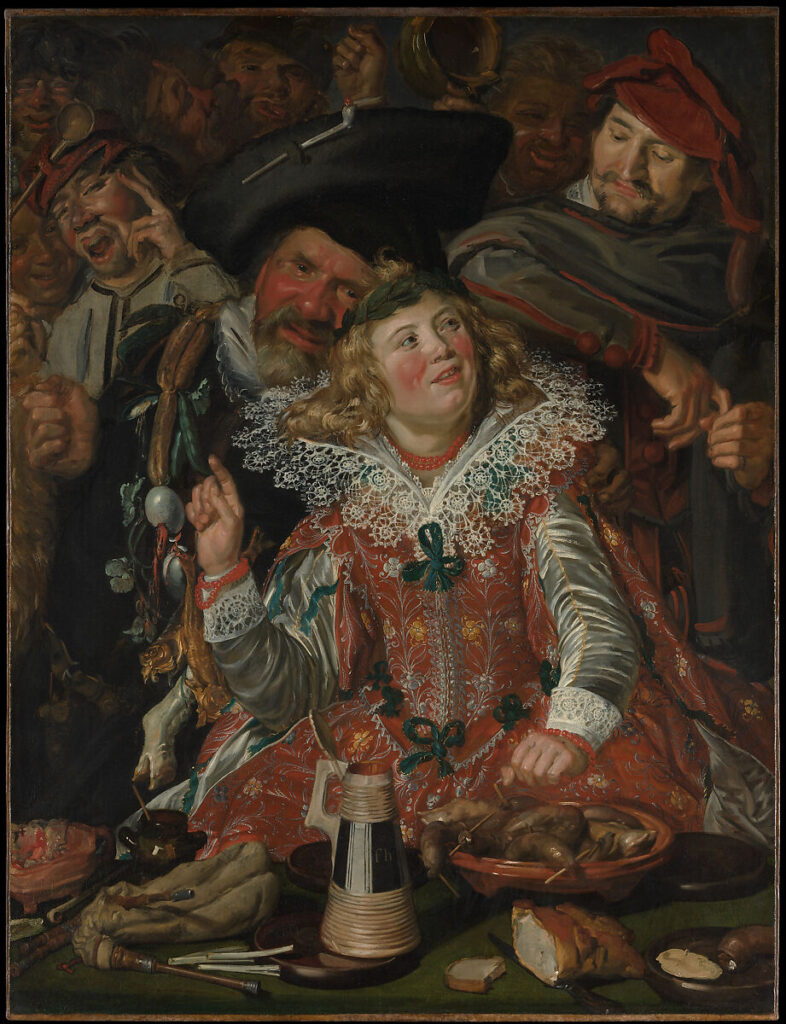
The Taking Away of Flesh
The week of Ash Wednesday is significant for the Church in many ways. The Monday and Tuesday following Quinquagesima and preceding Ash Wednesday not only serve as precursors and a transition to Lent but are also the last days of the Carnival celebrations. These days continually push towards the beginning of the next Church season.
Carnival, which we’ve discussed before in our post for Septuagesima, is the unofficial churchly period that begins after Epiphany and extends through the Gesima Sundays, or pre-Lent. The name derives from the Latin expression, carne levare, which means “removing the flesh.” This title has a twofold meaning, of course: on the one hand it refers to preparing for mankind’s own penance and the denial of fleshly sins and desires during Lent. On the other hand, it refers very literally to the eating up of all meat (i.e. animal flesh) in preparation for the Lenten fast.
Thus, Collop Monday’s title, a reference to the beloved meat dish eaten on that day, starts to make a little more sense. Also known as Fat Monday, Rose Monday, or Shrove Monday (coming from the term “shrive,” meaning confession and penance), it is one of the last days in which Christians can prepare their hearts, minds, bodies, and homes for Lent. It is on this Monday and the next day, Fat Tuesday, that the feverish preparation for Lent is in full swing. However, the day is not one of austerity or gloom. Instead, it is the last “hurrah” before the upcoming season of penance.
By the time Christians reach this day, it is certainly time to cook up all the inappropriate fasting foods in the house, prepare for individual confession and absolution, do some cleaning, get together for festive celebrations with family and friends, and engage in all the other activities that must be wrapped up during Shrovetide.

A Brief History
The celebration of Collop Monday and its inclusion in Shrovetide stretch far back into the Church’s history. Many of the traditions linked with this day are long-lasting, part of the greater Shrovetide celebrations. Shrovetide and the activities associated with Shrove Monday and Shrove Tuesday were so beloved and meaningful to Christians that they sometimes extended even beyond just these two days, reaching back to the Thursday, Friday, and Saturday before Quinquagesima. Over time, these days have had less prominence placed upon them, allowing Collop Monday to stand out as a particularly noteworthy part of Shrovetide.
The term “collop” alludes to the traditional British breakfast dish of thinly sliced meat and eggs, where the last slices of meat in the house (thinly cut like bacon or ham) are cooked with eggs. The day is thought of as the time to clear the house of lard before the fast begins. While the meal was always just another way to use up any remaining cuts of meat that still might be in your fridge or freezer, it has over time become associated with the making and eating of bacon or other breakfast meat. Thus, while collops are surely an essential part of any household’s regular Lenten preparations, the dish can mean a few different ways to prepare your meat and eggs in anticipation for Lent. No matter how you choose to eat to celebrate the day, though, the fat rendered from the meat should be saved and used for the pancakes served the next day, on Fat Tuesday!

References:
1. Blackburn, B. & Holford-Strevens, L. The Oxford Companion to the Year. Oxford University Press. 1999. Urlin, Ethel L.
2. Festivals, Holy Days, and Saints’ Days: A Study in Origins and Survivals in Church Ceremonies and Secular Customs. Simpkin, Marshall, Hamilton, Kent & Co., Ltd. 1915.
Images:
1. Peasant Fair, Peeter van der Borcht, The Netherlands, 1553.
2. Jeremias van Winghe, Kitchen Scene, The Netherlands, 1613.
3. Merrymakers at Shrovetide, Frans Hals, The Netherlands, 1616-1617.

